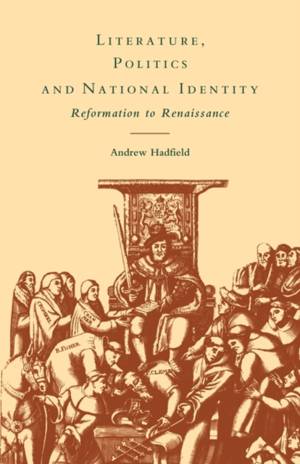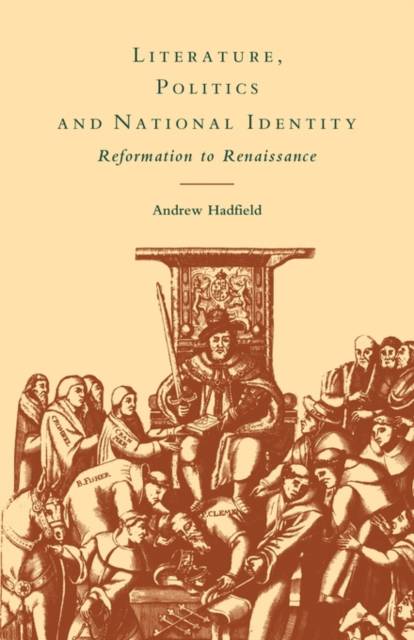
Je cadeautjes zeker op tijd in huis hebben voor de feestdagen? Kom langs in onze winkels en vind het perfecte geschenk!
- Afhalen na 1 uur in een winkel met voorraad
- Gratis thuislevering in België vanaf € 30
- Ruim aanbod met 7 miljoen producten
Je cadeautjes zeker op tijd in huis hebben voor de feestdagen? Kom langs in onze winkels en vind het perfecte geschenk!
- Afhalen na 1 uur in een winkel met voorraad
- Gratis thuislevering in België vanaf € 30
- Ruim aanbod met 7 miljoen producten
Zoeken
Literature, Politics and National Identity
Reformation to Renaissance
Andrew Hadfield, Hadfield Andrew
Paperback | Engels
€ 82,45
+ 164 punten
Omschrijving
For many years C. S. Lewis's dismissal of the sixteenth century as a 'drab age' influenced literary scholars. Andrew Hadfield offers a challenging reinterpretation, through study of the work of some of the century's most important writers, including Skelton, Bale, Sidney, Spenser, Baldwin and the Earl of Surrey. He argues that all were involved in the establishment of a vernacular literary tradition as a crucial component of English identity, yet also wished to use the category of 'literature' to create a public space for critical political debate. Conventional assumptions - that pre-modern and modern history are neatly separated by the Renaissance, and that literary history is best studied as an autonomous narrative - are called into question: this book is a study of literary texts, but also a contribution to theories and histories of politics, national identity and culture.
Specificaties
Betrokkenen
- Auteur(s):
- Uitgeverij:
Inhoud
- Aantal bladzijden:
- 284
- Taal:
- Engels
Eigenschappen
- Productcode (EAN):
- 9780521118859
- Verschijningsdatum:
- 3/09/2009
- Uitvoering:
- Paperback
- Formaat:
- Trade paperback (VS)
- Afmetingen:
- 140 mm x 216 mm
- Gewicht:
- 362 g

Alleen bij Standaard Boekhandel
+ 164 punten op je klantenkaart van Standaard Boekhandel
Beoordelingen
We publiceren alleen reviews die voldoen aan de voorwaarden voor reviews. Bekijk onze voorwaarden voor reviews.









